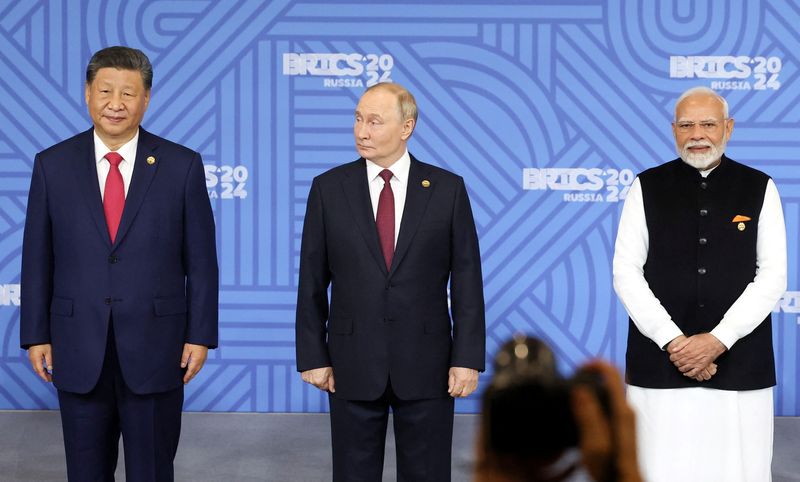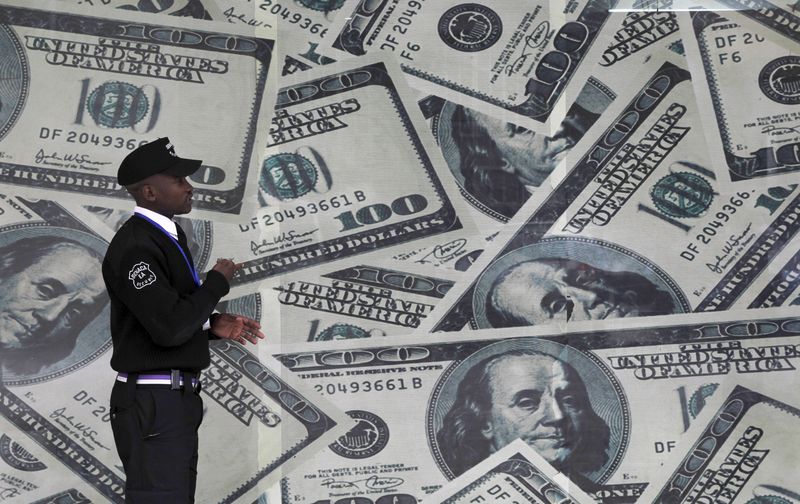By Guy Faulconbridge
MOSCOW (Reuters) – The idea of the BRICS group ever challenging the U.S. dollar is for the faint of heart as long as China and India remain so divided and refuse to cooperate on trade, the former Goldman Sachs economist working with came up with the BRIC acronym against Reuters.
Russian President Vladimir Putin is using the summit of BRICS leaders to show that Western efforts to isolate Russia over the war in Ukraine have failed and that Russia is building ties with Asia’s rising powers.
The then chief economist of Goldman Sachs, Jim O’Neill, introduced the term BRIC in 2001 in a research paper that highlighted the enormous growth potential of Brazil, Russia, India and China – and the need to reform global governance to include them .
“The idea that the BRICS can be a truly global economic club is clearly a bit of a fanfare in the same way that the G7 can be, and it’s very worrying that they see themselves as some kind of alternative global thing, because it is clearly not feasible,” O’Neill told Reuters.
“It seems to me to actually be a symbolic annual meeting where key emerging countries, especially vocal ones like Russia, but also China, can actually come together and emphasize how good it is to be part of something where the US and China are not be involved. that global governance is not good enough.”
O’Neill, who admitted he would “have Mr BRICS stamped on my forehead forever”, said the BRICS as a group had achieved very little in the past fifteen years.
He added that it was not possible to solve truly global problems without the United States and Europe – just as it was not possible for the West to solve truly global problems without China, India and, to a lesser extent, Russia and Brazil.
The BRICS group emerged from meetings between Russia, India and China, which then began to meet more formally, eventually adding Brazil, South Africa, Egypt, Ethiopia, Iran and the United Arab Emirates. Saudi Arabia has yet to formally join.
The group now represents 45% of the world’s population and 35% of the economy, based on purchasing power parity, although China accounts for more than half of its economic power.
Putin opened the summit on Wednesday by saying that more than 30 states had expressed interest in joining the group, but that it was important to strike a balance in any expansion.
If more members joined the BRICS, it would become even more difficult to achieve anything, O’Neill said.
DOLLAR CHALLENGE?
Russia is trying to convince the BRICS countries to build an alternative platform for international payments that would be immune to Western sanctions.
O’Neill, 67, said people had been talking about alternatives to the dollar since he started in finance, but none of the countries with the potential to challenge the dollar had done anything to do so seriously.
Any BRICS currency, he said, would be heavily dependent on China, while Russia and Brazil would not be significant parts of it, he said.
“If they really want to take economic matters seriously, why don’t they really push for less tariff-based trade between each other?” said O’Neill.
“I will take the BRICS group seriously if I see signs that the two countries that really matter – China and India – are actually really trying to agree on things, rather than effectively confronting each other all the time.”
India has been trying to curb Chinese investments in the country since a decades-old border dispute culminated in a clash between border guards in 2020. The two countries pledged to strengthen cooperation on Wednesday in their first formal talks in five years.
Chinese President Xi Jinping told Putin that the international situation was in the grip of chaos, but Beijing’s strategic partnership with Moscow was a force for stability amid the most significant changes in a century.

O’Neill said the G20 has failed to become a pillar of true global governance because the United States and China have both turned inward since the middle of the last decade.
He said the BRICS had no clear objectives and would have to tackle major issues for humanity, such as finding vaccines or medicines for infectious diseases, or combating climate change.


